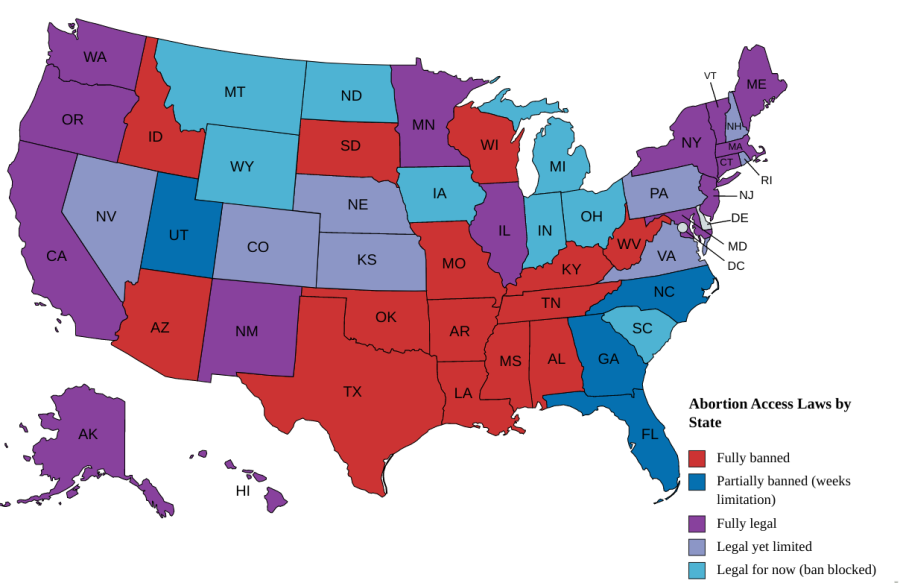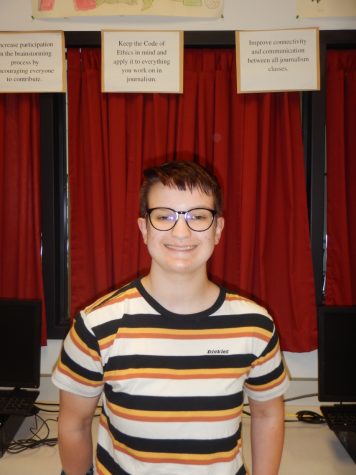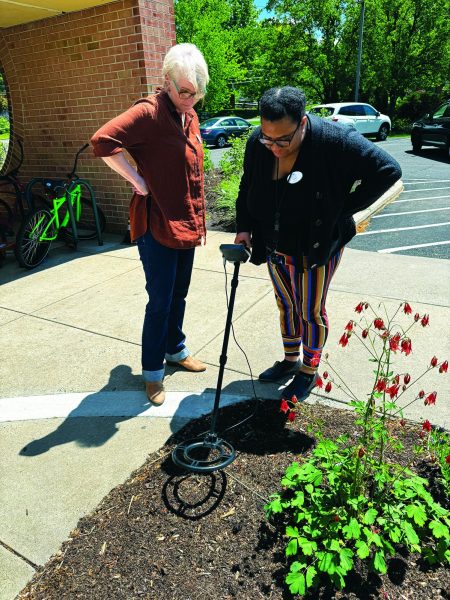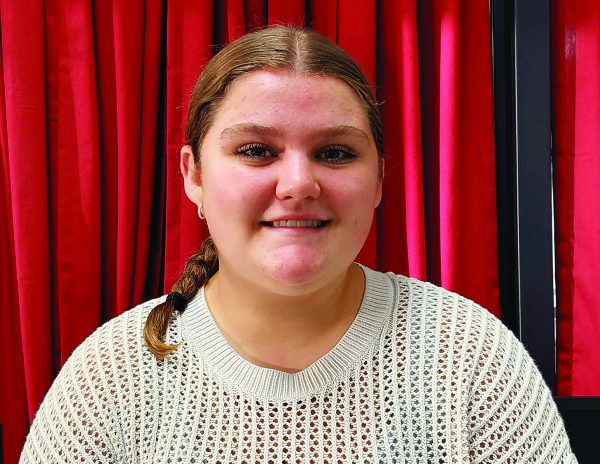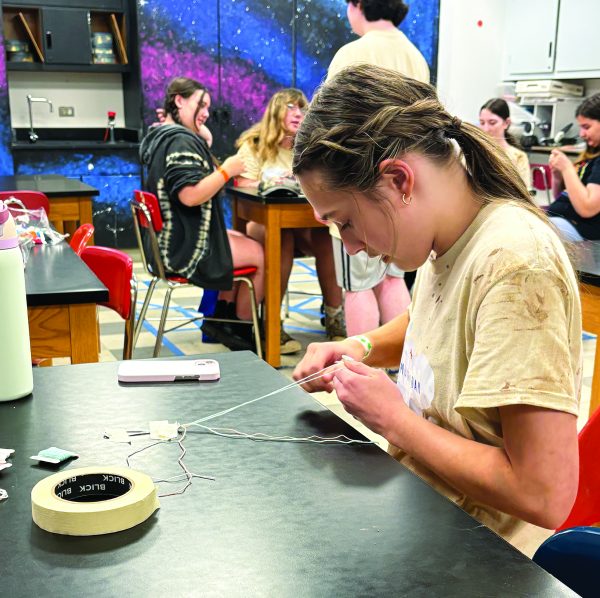Dobbs decision pushes new voters to self-educate
Through discussions and education, students are preparing for an election already centered around the recent Dobbs decision and the implications of the ruling. However, despite this interest in the issue, potential increased voter behavior is not guaranteed.
Available to the states…Following the overturning of Roe v. Wade, the United States of America has various laws and regulations regarding abortion access by state. This map of abortion’s access in the country is subject to change in the upcoming midterm elections.
Due to the overturning of Roe v. Wade, Souderton voters are discussing opinions and educating themselves on the new ruling to prepare for the upcoming midterm elections in November.
The Dobbs v. Jackson Women’s Health Organization case, decided on June 24 overturned the previous ruling established by the Roe v. Wade case on January 22, 1973.
According to social studies teacher Jessica Muller, this new ruling will return the decision of abortion’s legality back to the states, not make abortion illegal.
“If the states would like to continue access to abortions or put limitations on abortions or to outlaw abortions, that is now all done at the state level,” Muller said.
The New York Times said that this decision has led to a point where “most abortions are now banned in at least 14 states.”
As of September 29, abortion is still legal in Pennsylvania.
However, according to social studies teacher Nicole Harner, this fact may change in the upcoming midterm elections in November.
Harner said that with the new ruling and more people registering to vote, the upcoming elections are “going to be a big deal” in determining the legality of abortion-related services in Pennsylvania.
According to social studies teacher Amanda Gale, the recent ruling has provided an opportunity for both sides to express their views at a state level.
“It’ll be interesting to see in different states whether [the ruling] changes the normal electoral outcome,” Gale said.
This ruling’s influence extends beyond the possible outcomes of the midterm elections. There has also been an uptick in women registering to vote.
According to The New York Times, the percentage of newly registered female voters in Pennsylvania has jumped from 49% to 56% after the Dobb decision was leaked.
However, Muller said that these statistics do not reflect what the true voter behavior will be in the upcoming elections, and that “it’ll be hard to tell” whether voters turn out for the elections.
“I think that it depends where people are at a point in their life where they have the perspective of realizing how important this [decision] is,” Muller said.
According to Harner, the best way to start paying attention to new issues such as reproductive rights is to actively seek out information for self-education before you turn 18, the legal age to register to vote.
Although most Souderton students are not able to vote for their representatives, Gale said that one of the ways that these students can get involved is to “let [representatives] know” what they support.
“Even if you’re not of voting age, they’re still your representative, you’re still their constituent,” Gale said.
Another way, Harner said, to remain aware of these decisions and new issues in elections is to remember that “what’s going through the Supreme Court is just as important” as federal government decisions. “So there’s all different ways to be involved. Discussion is a start, but you have to [be] willing to listen as well as talk,” Harner said.

